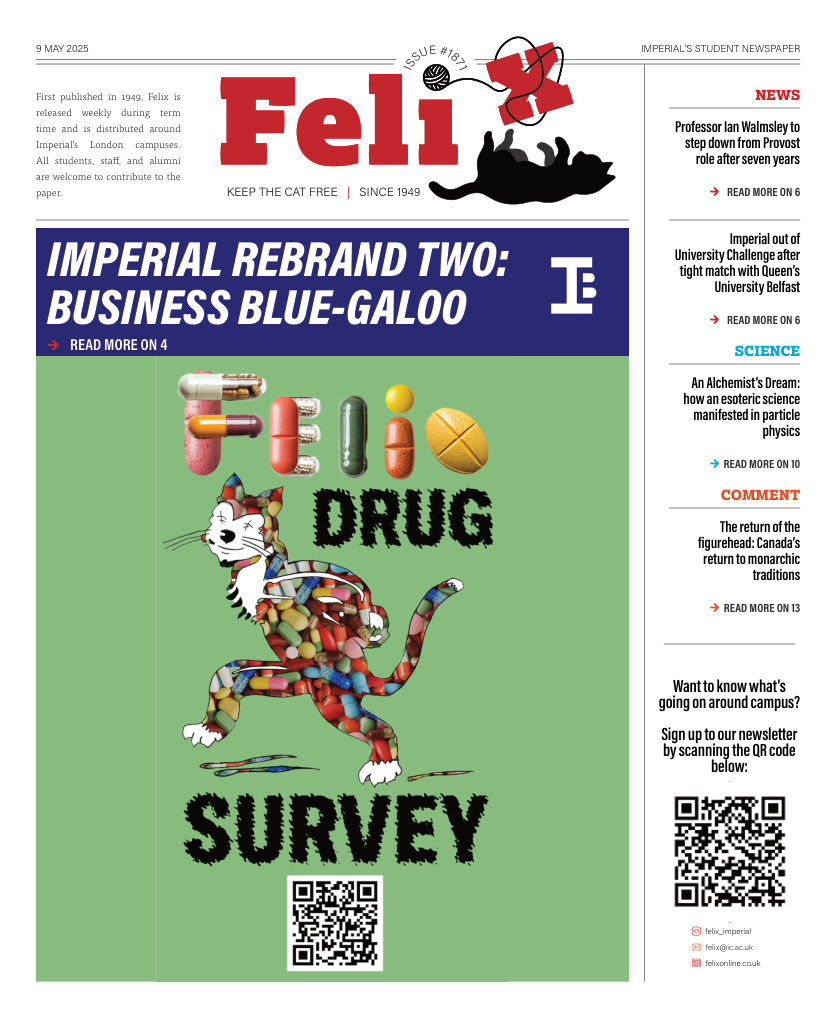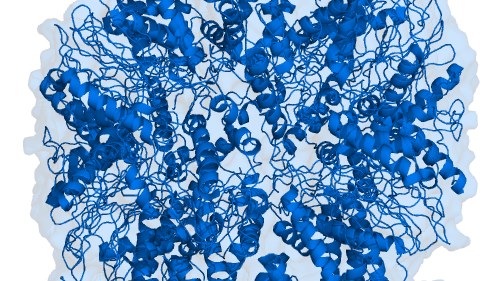Microbiology Society Conference: Driving Innovation Against Antimicrobial Resistance
Imperial researchers presented their work at this year’s conference in Liverpool
The 2025 Microbiology Society Annual Conference, held from 31st March to 3rd April in Liverpool, brought together a vibrant community of researchers, clinicians, and students from across the UK and beyond to address the pressing challenges of antimicrobial resistance (AMR) and emerging pathogens. Staff and students from Imperial’s Department of Infectious Disease, and Department of Metabolism, Digestion, and Reproduction attended the event to present new research and to discuss the future of infectious disease control.
This year’s conference featured a series of thought-provoking prize lectures, showcasing groundbreaking work conducted across the microbiology field. A wide range of sessions throughout the conference were on offer to attendees, which focussed on topics ranging from the molecular mechanisms behind AMR, to the growing challenges posed by emerging viral, bacterial, and fungal pathogens, with new sessions also highlighting the role of artificial intelligence in microbiology.
Imperial researchers presented a range of exciting new work at the conference:
Postdoctoral Researcher, Dr Wiyada Wongwiwat introduced Sp100 as a novel restriction factor of herpesvirus infection.
Anrong Li and Senior Lecturer of Virology Dr Rob White presented a poster describing an innovative method for culturing Epstein-Barr Virus (EBV) lab strains that closely resemble the parental phenotypes seen in patient isolates.
Syed Ibrahim showcased his work on the evolution of two key E3 ubiquitin ligases, RIPLET and TRIM25, involved in regulating antiviral immunity.
PhD student, Sophie Stephens, also attended the conference. Sophie uses "conditioned media from cultures of bacteria representative of the cervicovaginal microbiome to investigate the effects these conditioned media have as treatments on changes in HPV oncogene expression, leading to HPV persistence".
Professor Darius Armstrong-James introduced the Fungal ONE Health and Antimicrobial Resistance (F1AMR) Initiative, highlighting the urgent need to integrate fungal pathogens into AMR and One Health frameworks.
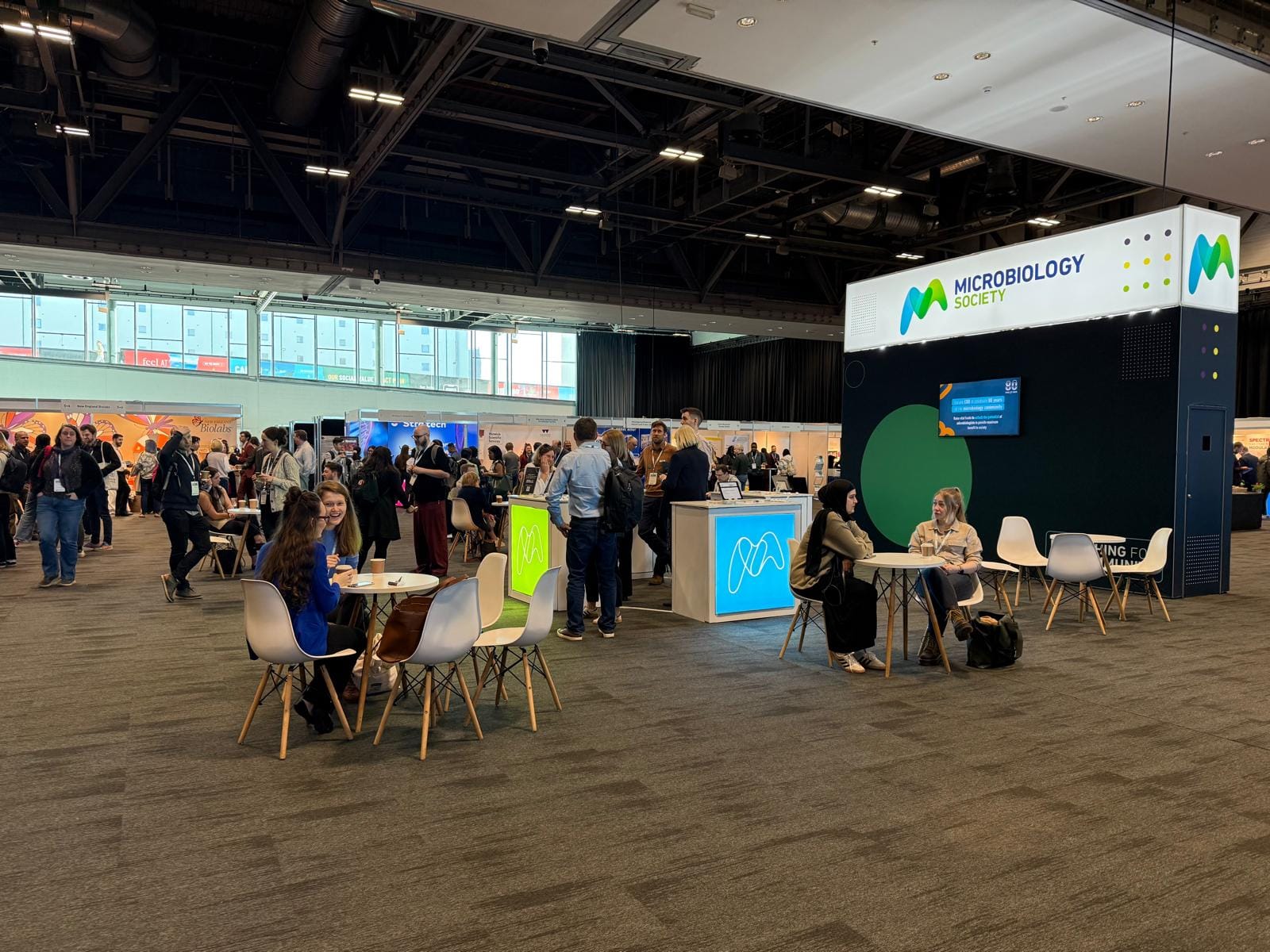
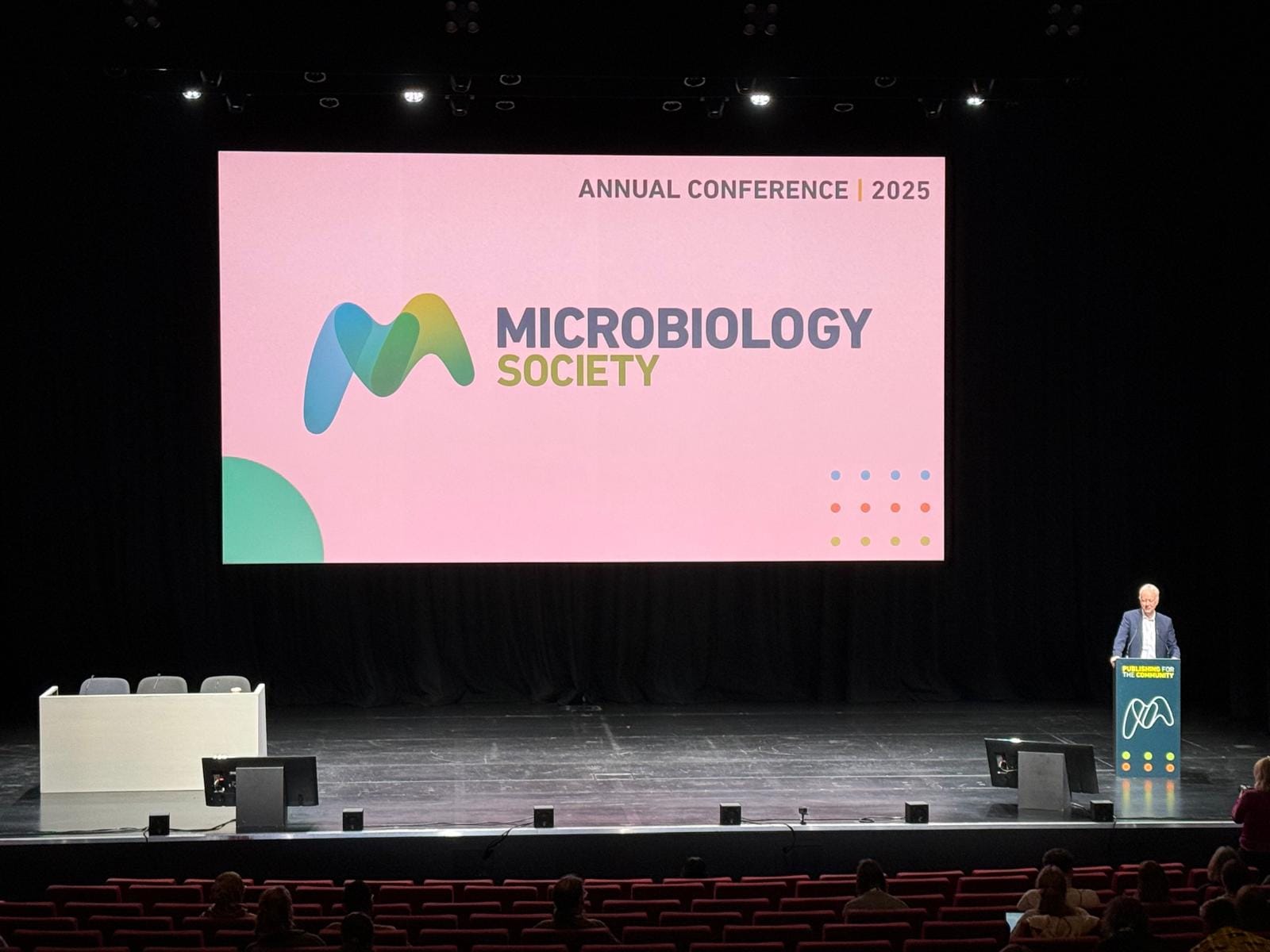
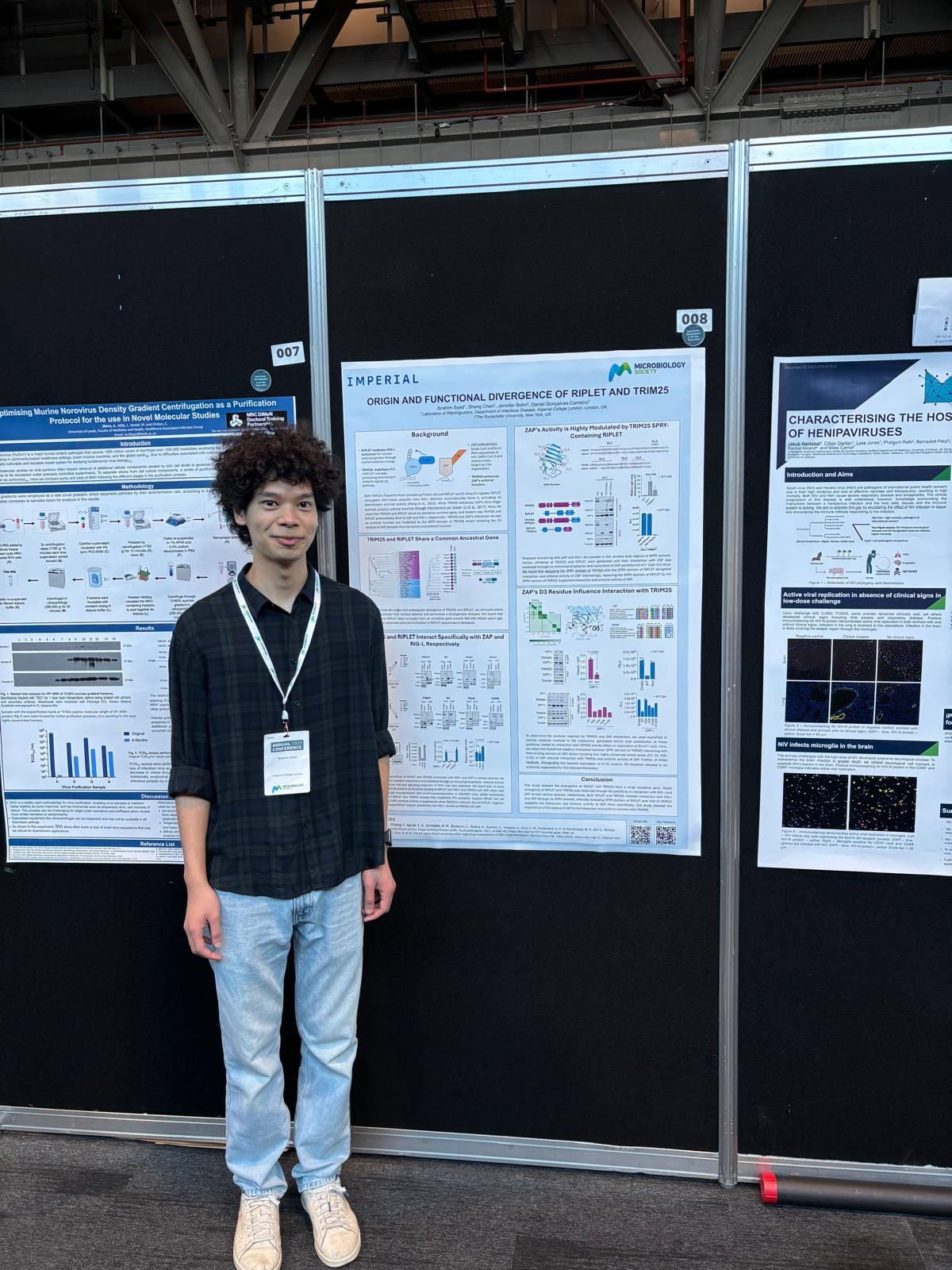
Selection of images during the event, pictured in last image is Syed Ibrahim, who is presenting their work on two key E3 ubiquitin ligases, RIPLET and TRIM25, involved in regulating antiviral immunity. Eldrian Tho
Throughout the conference, there was a strong emphasis on collaboration and interdisciplinary research, both of which are crucial for tackling the multifaceted challenges of AMR and emerging infectious diseases. The importance of innovation in diagnostics, therapeutics, epidemiological surveillance, and public health strategies was clear, with discussions centring on pandemic preparedness.
Looking ahead, the Microbiology Society Annual Conference 2026 will be held in Belfast, Northern Ireland. Researchers, biotech companies, and healthcare practitioners are already looking forward to continuing these crucial discussions and building on the momentum from Liverpool. Anyone with a passion for microbiology is warmly encouraged to get involved!

